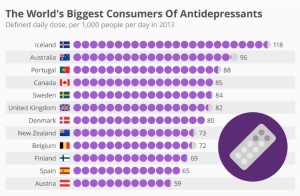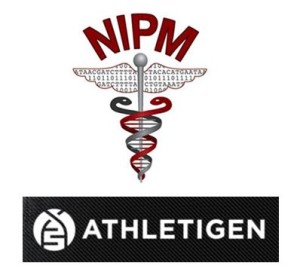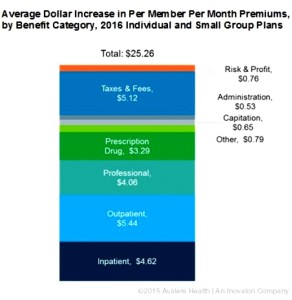- Antibiotics: urgent calls for global payment pot (in-pharmatechnologist.com)Securing New Drugs for Future Generations: The Pipeline of Antibiotics the Review on Antimicrobial Resistance (amr-review.org)
As World Antibiotics Awareness Week draws attention to the threat of resistance, pharma companies large and small say a worldwide overhaul of payment models will make anti-infective R&D profitable again…AstraZeneca published an open letter…calling on the UK government to attract companies to antibiotics discovery work with a more profitable funding mechanism…the pharma industry has been reluctant to sink funds into what it perceives as a poor return on investment. Traditional payment models – where companies profit per volume sold – are a weak incentive in an area where prescription levels are deliberately limited to prevent resistance…Documents so far suggest a shared pot funded by countries – possibly the G20 – “to establish a mechanism to purchase the global sales rights to new antibiotics, and to subsequently manage their supply internationally.“The development and manufacture of drugs would still take place within the pharmaceutical industry, drawn through the pipeline by the incentive of a full ‘buyout’ of their product once it is ready to market. Although the developer would surrender the right to market their new drug, they would be reimbursed by an amount sufficient to ensure an adequate return on their development costs, and the investment incurred.”
- The World’s Biggest Consumers Of Antidepressants (forbes.com)
Iceland is the biggest consumer of antidepressants worldwide, according to recent OECD (Organisation for Economic Cooperation and Development) report entitled “Health at a Glance 2015.” Some 118 out of every 1,000 Icelanders now consume these drugs on a daily basis, though the trend certainly isn’t new...Some experts attribute the country’s use of these drugs to a weakening of social taboos, along with a greater tendency to seek treatment. Some also believe there is a link between antidepressant consumption and the failure of all three of Iceland’s main banks during the financial crisis. Australia is in second position with 96 out of every 1,000 people taking antidepressants daily, while Portugal rounds off the top three with 88 per 1,000.
- Precision Medicine Is A Needed Goal That Will Benefit Cancer Patients (forbes.com)
Today an oncologist-policy-maker-and-medical-ethicist reminds us that, in effect, we’re all paying for the sky-high price of new drugs. Which begs the question, if patients – or society – can’t afford the cancer treatments we’ve already got, why search for new ones?...bottom line: Precision medicine will help cancer patients. Already it’s a practice-changer, an oncology life-saver. So far, precision medicine has advanced care, and improved survival…it will take time, years, for physicians (and machines) to learn how best to give precise, targeted cancer treatments in combinations at the least toxic, optimized and effective doses for each patient. Doctors haven’t yet invented most of the “recipes” for good-quality PM, and are still searching for better ingredients (drugs)…Precision Medicine will emerge as a positive industry encompassing science, informatics and health care delivery. It makes no sense to keep science – or precision – out of clinics. Rather, science will, or should, become increasingly relevant to clinical practice…
- Researchers May Soon Predict Drug Side Effects on Different Patients (specialtypharmacytimes.com)
Researchers seek to determine which side effects will be experienced by different patient groups…the most difficult hurdles for patients… to overcome are the debilitating side effects that accompany some treatments…To address this…investigators…constructed a proof of concept predictive model that may be able to forecast side effects different patients are likely to experience…We're not just interested in predicting the efficacy of a drug, but its side effects as well…Side effects are very personalized. Two different people can take the same drug, but one person might experience side effects while the other doesn't...This study is a step forward in demonstrating that patients could be precisely treated based on their genetic makeup…
- Laser delivery will allow painless, needle-less vaccines (in-pharmatechnologist.com)
A laser-based treatment will allow powdered vaccines to be delivered through the skin, scientists say…A University of Rhode Island researcher is developing an anti-smoking vaccine administered via “a laser-based epidermal skin powder delivery”…The laser platform creates micro-channel arrays – tiny pores – in the skin, through which a powdered vaccine is delivered from a patch applied onto the skin… the system could lead to the first FDA-approved nicotine vaccine, and beyond that, could provide a painless, needle-free alternative to liquid injections…“Generally, vaccines are liquid, but powdered vaccines are more convenient and they have a longer shelf-life,”… The method also allows use of potent nano-encapsuated adjuvants to safely boost skin vaccination without significant local reactions…“This system is expected to safely and profoundly boost nicotine antibody production and completely block nicotine entry into the brain,”
- Genetics company looking at what can make athletes better (reviewjournal.com)
Jeremy Koenig, CEO of Athletigen…visited the Nevada Institute of Personalized Medicine at UNLV…to talk about how genetic testing can help athletes become better, stronger and faster by leveraging the genes within them…The institute is conducting research, developing technology and providing education and training to improve individual and community health in Nevada. Personalized, or precision, medicine looks at genetic makeup to help provide a blueprint for effective treatments and disease prevention strategies…Koenig, who competed as a sprinter at the collegiate level in Canada, started Athletigen to help athletes use their genetic code to boost performance…Genetics can help show athletes whether they have a tendency toward endurance or power and their maximum level of oxygen consumption…When athletes know their risk for injury, for example, they can take preventative measures by adjusting their training routines and taking steps to ensure their rest and recovery after exertion…Collaboration between private industry and the University of Nevada, Las Vegas precision medicine initiative offers opportunities for new discoveries...
- Boston Children’s, IBM Watson take on rare diseases (healthcareitnews.com)
‘Watson can help us ensure we’ve left no stone unturned in our search to diagnose and cure these rare diseases.’…IBM Watson and Boston Children's Hospital are taking on rare children's diseases that are hard to diagnose and treat. First up is a rare form of kidney disease…Their first project will focus on kidney disease. Watson will analyze the massive volumes of scientific literature and clinical databases on the Watson Health Cloud to match genetic mutations to diseases and help uncover insights that could help clinicians identify treatment options…IBM has been developing Watson's ability to analyze genomic data in collaboration with leading cancer centers around the world. The new project with Boston Children's represents the first time this technology will be applied to help clinicians efficiently identify possible options for rare disease diagnosis and treatment.
- Despite rhetoric, new data shows medicines are not primary driver of premium increases (catalyst.phrma.org)
Despite claims from insurers about the impact of medicine costs on premium increases, their own data indicates otherwise. In fact, just $3.29 of the average $25.26 increase in monthly premiums in 2016 is due to prescription drug costs, according to new research released yesterday by Avalere Health. So what is driving premium increases? Avalere found that the largest driver of premium increases was hospital services…analysis is based on actuarially-certified analysis submitted by the plans themselves to justify their premium rate increases. This data shows that prescription drugs dispensed at a pharmacy represent a smaller share of premium increases than inpatient hospitalization, outpatient hospitalization, professional services or taxes and fees. In fact, even if plans did not anticipate any increase in prescription drug spending, the average premium would still increase by more than $20 per month.
- Want to win on pricing? Take a closer look at the numbers (fiercepharmamarketing.com)
Controversy surrounding drug pricing has reached an all-time high…So what's a drugmaker to do? Take a hard look at the data…Higher prices often attract lower-cost competitors and eliminate the short-term price increase benefit…public backlash to price hikes can trigger executive firings and other actions that impact the market…"While price hikes often represent both the recouping of historical investments and funding investments in new research to develop better treatments, companies should not descend into opportunistic 'price gouging,"…Leveraging pricing data can make a big difference in helping drugmakers stay abreast of the competition, especially for companies with off-patent products…Companies can use pricing data to gauge threats from generics or biosimilars, and identify trends in therapeutic areas or even specific indications. They can borrow from rivals' price-negotiation strategies to make the best case for their own meds. "If companies are able to actively and effectively analyze the trends and see how the market reacts, they'll be in a lot better position moving forward,"…
- Researchers want to turn acid-loving microbes into safe drug-carriers (worldpharmanews.com)
Usually the microbe S. islandicus (Sulfolobus islandicus) is found in hot and acidic volcanic springs, but now the microbe has also found its way to the labs…researchers have for the first time showed that the exotic microbe is capable of delivering drugs to the human body…"One of the major challenges in pharmacy is to find ways to carry and protect drugs on their passage through the stomach. Many drugs may be absorbed through the intestines, so it would be a great help to be able to transport drugs safely through the stomach to the intestines", explains Sara Munk Jensen…Jensen and her colleagues…have managed to use S. islandicus to construct a nano-capsule (liposomes) that can transport drugs safely through the stomach.







